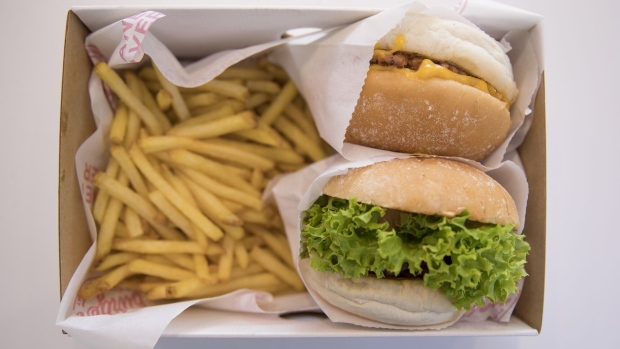Jun 20, 2024
New Fast Food Outlets Banned Near Schools in UK’s Newcastle
, Bloomberg News

(Bloomberg) -- A British city has become the latest to implement a clampdown on fast food outlets, banning new establishments near schools and areas with high childhood obesity rates in an attempt to boost children’s health.
Newcastle adopted a new planning document that bans opening hot-food takeaways in areas where more than 10% of children aged 10 and 11 are classified as obese. That would include all but two of the city’s 26 wards, according its website.The plan also calls for a ban on new establishments within 400 meters of schools, parks, leisure centers and other places where children congregate, with the exception of the city’s retail center.
The move is the latest from a number of UK cities that have moved to ban fast-food outlets near schools. In London applications for new hot-food takeaways within 400 meters of a school are not allowed, unless the borough has set its own rules on this. In Sandwell, just outside Birmingham, a similar ban has been in place since 2012.
More than 22% of English children in their final year of primary school, where kids are usually aged between 10 and 11, are obese, according to the National Health Service. The prevalence of children living in deprived areas, classified by income and other measures, is 30% compared with 13% in the least-deprived areas. In Newcastle, 29% of children in that age group are obese.
Governments around the world have struggled to tackle rising obesity rates for all ages, but the crisis among children is seen as key to helping prevent the condition from continuing into adulthood. Junk food advertising bans and exclusion zones around schools that bar fast food outlets from selling their products are being tested around Britain.
“Without national measures in place, local authorities are doing what they can within their powers to try and improve health and tackle inequalities that are driven by unhealthy food,” said William Roberts, chief executive of the Royal Society for Public Health. Roberts said there isn’t a silver bullet to solve rising levels of child obesity, and what’s needed is a focus on creating healthy places “whether it’s planning or local food systems.”
Councils that have pushed for bans have been met with resistance. At least 43 councils have had their policies challenged by the Yum! Brands Inc. KFC chain since 2017, with more than half of these cases resulting in significant changes or abandoning of the plans, according to an investigation last year by the Times of London.
In Newcastle, McDonald’s Corp. has already signaled its opposition. An exclusion zone would be inconsistent with national planning policy and isn’t “justified, effective or consistent,” the chain said in a summary consultation document published alongside the decision to move ahead with the ban. McDonald’s also said that similar policies have been found to be “unsound.”
KFC didn’t immediately comment when reached by email. McDonald’s didn’t immediately respond to a request for comment.
©2024 Bloomberg L.P.


